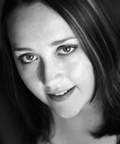Blog Archives
At the root
Every time I get into an emotional slump or an intellectually tricky spot, my friend Karen says to me, ‘Go back to your core texts.’
It’s a misleadingly studious-sounding and very arts-degree piece of advice, but it’s probably some of the best I’ve ever received because what she really means is: go back to those books, films, stories, songs and ideas that changed you, that sparked a new understanding in you, that helped you decide what it was you found really important.
 Perhaps the studious tone of the advice isn’t totally misplaced, because the first book I always go back to is Simone de Beauvoir’s The Second Sex. I came across it in my second year of uni, not through gender studies but through the philosophy department. I took a class on existentialism because I wanted to immerse myself in Sartre, but it was The Second Sex that eventually consumed me.
Perhaps the studious tone of the advice isn’t totally misplaced, because the first book I always go back to is Simone de Beauvoir’s The Second Sex. I came across it in my second year of uni, not through gender studies but through the philosophy department. I took a class on existentialism because I wanted to immerse myself in Sartre, but it was The Second Sex that eventually consumed me.
I found the book strange, startling and occasionally confusing, but every now and then a passage would resonate so strongly with my own experiences that it would lodge itself in the forefront of my consciousness, demanding I pay attention. Not being able to get it out of my head I would underline words, scribble notes in the margins, copy whole passages out onto paper just to make sure I’d processed them properly.
It was her discussion of the woman in love that knocked me about the most at the time:
Every woman in love recognises herself in Hans Andersen’s little mermaid who exchanged her fishtail for feminine legs through love and then found herself walking on needles and live coals.
I spent a lot of time kicking the football in party dresses as a kid (so to speak) and in my late teens I listened to a lot of Tori Amos because she gave voice, however cryptically, to a half-acknowledged set of instincts that were fundamentally frustrated by and yet still found themselves drawn to the aesthetics of traditional gender constructs.
and in the mist there she rides
and castles are burning in my heart
and as I twist I hold tight
and I ride to work
every morning wondering why
“sit in the chair and be good now”
and become all that they told you
I couldn’t say in all honesty that Beauvoir alone made me call myself a feminist. But if Amos’ songs prised open something inside me, Beauvoir put into tough, articulate sentences those feelings that I’d previously only ever expressed instinctively, or approached metaphorically through art or music.
At the 2010 MWF, one of the most rewarding and interesting panels I had the privilege to attend was ‘From Woolf to Wolf’. Sophie Cunningham, Monica Dux and Emily Maguire talked with MWF’s own Jo Case about feminist literature: Virginia Woolf’s A Room of One’s Own, Germaine Greer’s The Female Eunuch and Naomi Wolf’s The Beauty Myth respectively. It was heartening to see so many people of all ages at a session on feminist writing, but even more so to hear women talking about how those books – and many others besides – so profoundly influenced or changed them. And I remembered telling my mother about my experience reading The Second Sex. How it made me angry, afraid, astonished and excited all at once. She said she felt the same when, as an 18-year-old, she found Betty Friedan’s The Feminine Mystique. ‘Reading that book,’ she said, ‘was the first time I’d ever really thought: perhaps the world doesn’t have to be like this.’
Stories from every angle
So, another Melbourne Writers Festival winds to a close. It’s been that curious mixture of exhausting and energising, with heroes met and made.
Every festival organiser hopes for that magical combination of guests, which can elevate a decent hour’s chat into a wonderful interweaving of minds and ideas. My favourite panels saw this happen, particularly How Russia Changed My Life, featuring the charming Elif Batuman, intrepid memoirist Maria Tumarkin and the irrepressible historian Sheila Fitzpatrick; and From Woolf to Wolf, in which Sophie Cunningham, Monica Dux and Emily Maguire discussed Virginia Woolf, Naomi Wolf and Germaine Greer.
The festival hosted some international stars, including Joss Whedon and Norman Doidge, but often it’s the writers whose work  I’m less familiar with whose stories really affect and delight me. On Sunday, at Magazine, Jake Adelstein, whose book Tokyo Vice tells of how he faced intimidation from the yakuza, read from a deleted chapter of his book – a comic tale of trailing an escaped monkey around Tokyo’s Nishi-Azabu area and being outdone in journalistic prowess by a nine-year-old boy. But only the day before, Adelstein movingly told the packed audience at Feddish about the real and dangerous cost of opposing the yakuza.
I’m less familiar with whose stories really affect and delight me. On Sunday, at Magazine, Jake Adelstein, whose book Tokyo Vice tells of how he faced intimidation from the yakuza, read from a deleted chapter of his book – a comic tale of trailing an escaped monkey around Tokyo’s Nishi-Azabu area and being outdone in journalistic prowess by a nine-year-old boy. But only the day before, Adelstein movingly told the packed audience at Feddish about the real and dangerous cost of opposing the yakuza.
 I loved the new venue, Feddish, where the Morning Fix sessions opened each festival day with a free smorgasbord of authors. But traditional venues continued to shine, including the Toff, which saw DBC Pierre settle back in a giant storytelling chair and artists including Clare Bowditch and Hannie Rayson re-enact Fleetwood Mac’s Rumours.
I loved the new venue, Feddish, where the Morning Fix sessions opened each festival day with a free smorgasbord of authors. But traditional venues continued to shine, including the Toff, which saw DBC Pierre settle back in a giant storytelling chair and artists including Clare Bowditch and Hannie Rayson re-enact Fleetwood Mac’s Rumours.
The parties, of course, were very good. The official opening party set the tone for a fun ten days, with the speeches including a tale of festival love and lust; and the celebration of Overland‘s 200th issue was attended by well-wishers and friends galore. A 25th birthday can never go past without at least a couple of good bashes, and at MWF’s 25th, Readings Books’ Mark Rubbo dropped by, as did Les Murray.
As a participant in the festival this year, too, I experienced many surprising and wonderful moments. During the Schools Program, I spoke with fantastic authors Gabrielle Wang, Kate Forsyth and Alice Pung; and inspiring youth leaders Chris Varney and Adam Smith. It’s so amazing to see how enthusiastic young festival-goers are about reading, books and ideas, and I have no doubt that we’ll see some of them back as guests in the future. During Kill Your Darlings‘ residency at Magazine, it was pretty wild to hear Robyn Archer sing every musical reference in her book Detritus – her live fifteen-minute snippet reel needed to be seen to be believed.
Congratulations to the fantastic festival staff and volunteers for a magnificent 2010 festival. I wish you all a good week’s sleep.
From Woolf to Wolf: Cunningham, Dux and Maguire on classic feminist texts
In Woolf to Wolf, Sophie Cunningham, Monica Dux and Emily Maguire came together to discuss three great works of literature. The venue was changed to accommodate the many people who wanted to celebrate these significant books, and we all crammed into the repurposed BMW Edge.
Cunningham was revisiting Virginia Woolf’s A Room of One’s Own, and noted first how much Woolf had contributed – not only to literature, but to the form of the book and life writing. Cunningham read one of Woolf’s famously semicoloned passages to show how unusual the prose itself is, and spoke spiritedly on how the book shows how when women were given the chance to write their stories, they wrote even the sentences themselves differently to anything else that appeared at the time. So, the book is more relevant than it should be today, with Cunningham mentioning particularly Woolf’s writing about a female’s need for an income and education – circumstances that, once filled, would mean ‘a huge rush of women’s words’. But Cunningham opined that women might actually be worse off now that we were 20 years ago: the intense scrutiny that women undergo is still relevant today. Being judged as a writer/a feminist writer a non-feminist writer/as a woman writer is ‘a painful and disabling thing’.
Monica Dux, co-author of The Great Feminist Denial, recently wrote an article in Kill Your Darlings about Germaine Greer’s  The Female Eunuch. Dux regretted that she wasn’t able to recount a great story of how when she first started menstruating, her mother gave her tampons and a copy of The Female Eunuch; or being handed it by an inspiring lecturer – but couldn’t remember when she first came across the seminal book. It’s a book that ‘floats about in a feminist ether’. Dux asked her friends if they had read the book, and about half confessed that they hadn’t. Yet the book is so strongly held in our consciousness – so strongly that people who haven’t read her work invoke her work or her name in the service of a feminist argument or ideal.
The Female Eunuch. Dux regretted that she wasn’t able to recount a great story of how when she first started menstruating, her mother gave her tampons and a copy of The Female Eunuch; or being handed it by an inspiring lecturer – but couldn’t remember when she first came across the seminal book. It’s a book that ‘floats about in a feminist ether’. Dux asked her friends if they had read the book, and about half confessed that they hadn’t. Yet the book is so strongly held in our consciousness – so strongly that people who haven’t read her work invoke her work or her name in the service of a feminist argument or ideal.
Nevertheless, the fact that Greer and The Female Eunuch are synonymous with feminism doesn’t mean that women have an uncomplicated relationship with her and the book. In fact, particularly in academic circles, the book was maligned or shunned. However, the book is continually cited by women as the book that ‘changed my life’. In attempting to answer why, Dux cited the bawdy, accessible prose, which set it apart from other contemporary works. In addition – while it held no concrete solutions – it was an inspiration. Further, Greer’s ‘refusal to go away or toe any party line’ has helped perpetuate an aura around the book. It helped unify women in their response to Louis Nowra’s article – which is a pretty good outcome from a feminist classic.
 Emily Maguire is the author of Princesses and Pornstars. Secretly self-hating teenager. ‘slathering on self-disgust with every stroke of the make-up brush’. Someone gave Maguire a copy of The Beauty Myth to read, which she only read to keep up with her friends. When she finished it, though, she ‘felt like she’d been slapped’. While Maguire felt her life wasn’t changed immediately by Wolf’s book, it did tear away at the loathing she felt, for herself and other women.
Emily Maguire is the author of Princesses and Pornstars. Secretly self-hating teenager. ‘slathering on self-disgust with every stroke of the make-up brush’. Someone gave Maguire a copy of The Beauty Myth to read, which she only read to keep up with her friends. When she finished it, though, she ‘felt like she’d been slapped’. While Maguire felt her life wasn’t changed immediately by Wolf’s book, it did tear away at the loathing she felt, for herself and other women.
An interesting twist to Maguire’s relationship with the book was that, as her own feminism developed, she found herself disagreeing with as much of the book as she admired. When she was asked to interview Wolf earlier this year, she hesitated. Rediscovering the book in her preparation, however, Maguire felt ‘slapped in the face again’ – at the book’s passion and power.
Today, the beauty myth itself has mutated. Maguire cited the new ways in which all people – not just women – are subject to standards of beauty, with the increase in men’s eating disorders, botox and plastic surgery. This is why The Beauty Myth is a book, Maguire concluded, that we still need today.